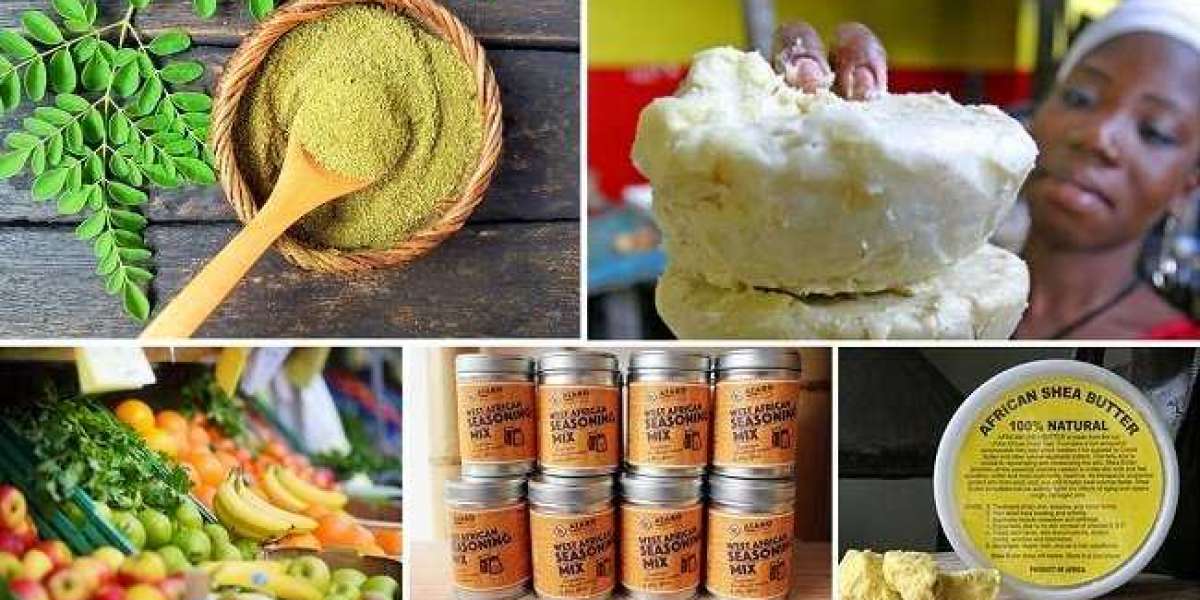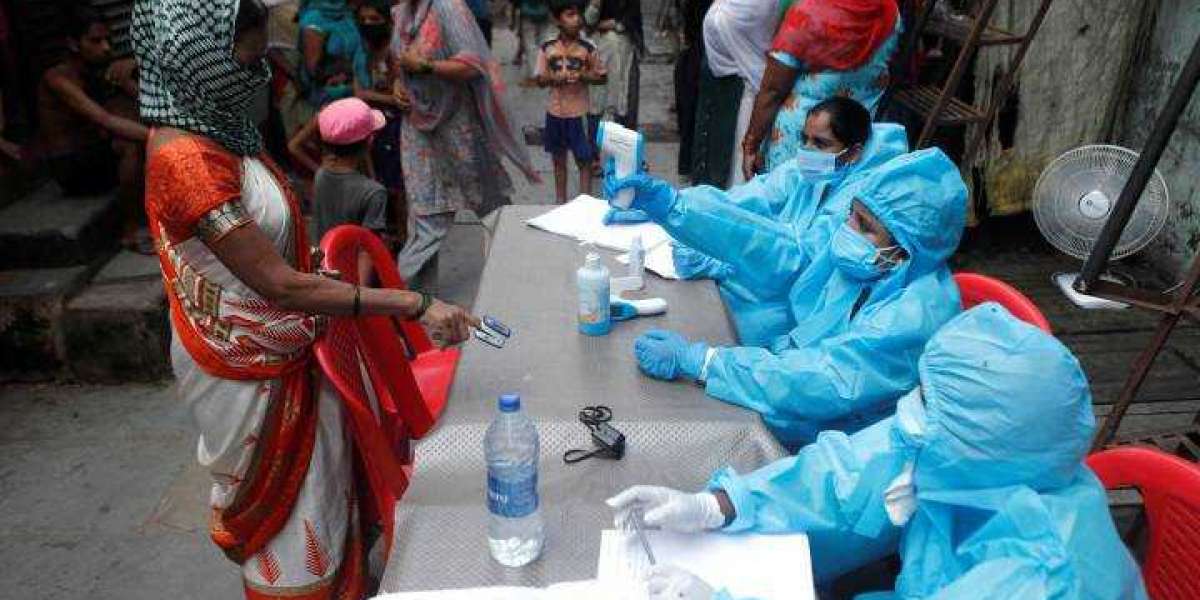In 2018 alone, the US spent more than $2.6 trillion on imports from over 200 countries. America buys everything big and small – from machines and mineral oils, to food products and pharmaceuticals.
Despite this huge and lucrative trade opportunity, and a large African diaspora community in the States, Africa’s sales to the US only made up 1.4% of America’s total imports in 2018.
Besides raw goods and minerals, Africa has a significant potential to boost its trade with the US particularly in promising categories like food and beauty products.
In recent years, uniquely African products like shea butter, spices, moringa tea leaves, local foodstuffs, tropical fruits and nuts have become promising business opportunities on the international market. It’s these types of products that present unique opportunities for African entrepreneurs and businesses looking to enter the export trade.
While the US presents an attractive market for African exporters, there is a critical technical side to excelling in the export business – especially if you plan to export food or beauty products to the USA.
This technical side – known as compliance – is one of the big reasons why African entrepreneurs and businesses are not able to succeed in the international export business.
This article features an exclusive interview with David Lennarz, a US compliance expert with over 22 years of experience working with exporters that trade with the US. Since 2003, his company – Registrar Corp – has worked with exporters around the world to meet the compliance requirements of the US Food Drug Administration (FDA).
In this interview, David shares several interesting insights and tips about compliance and how African companies can increase their chances of scaling the compliance hurdles of the FDA.
Here’s the full text of the interview:
Why is compliance a serious issue for African companies that want to export products to the US?

David Lennarz, Co-founder of Registrar Corp
Compliance with U.S. FDA regulations is especially important for new exporters; a company’s early compliance history will set the tone for future exports.
The FDA uses a Predictive Risk-based Evaluation for Dynamic Import Compliance Targeting (PREDICT) system to determine which imports to examine or sample upon arrival to the United States. It allows the FDA to release low risk and consistently compliant products more quickly and to prioritize higher risk shipments for examination and sampling.
In other words, the lower the risk of a product and the better a company’s FDA compliance history, the lower the chance a shipment will get selected for examination and stopped at its port of U.S. entry.
If a company has non-compliant shipments early on, it will have a substantial negative effect on their PREDICT score.
For example, if a company has only shipped to the USA twice, and one of those shipments was non-compliant, their PREDICT score would essentially show 50% non-compliance. This is why it is always prudent to make sure your company is in compliance before making that first shipment.
What kind of products must go through FDA compliance before they can be exported to the US?
The FDA regulates a variety of products, including food, beverages, dietary supplements, medical devices, drug products, cosmetic products, and tobacco products.
What are the key requirements a business must fulfill to satisfy the FDA’s export rules?
The key requirements for a business heavily depend on what products they handle. The requirements for food are very different from those for drugs.
Most companies that handle FDA-regulated products are required to register with FDA and designate a U.S. Agent for FDA communications. Most FDA-regulated products must follow strict labeling rules. Drug and medical device companies must list each of their products with FDA.
One of the most common questions we receive is “does my product need FDA approval?” We put together this guide to indicate which types of products require FDA approval and other regulatory requirements for each.
In your experience, what are the 3 most common mistakes businesses make when they try to export products to the US?
i) Improper labeling
Labeling mistakes are one of the leading causes of FDA detentions.
FDA’s labeling rules for all products are strict and extensive, with regulations particular to everything down to the font size.
We put together a list of the top five food labeling errors to help new exporters avoid these same mistakes.
ii) Failure to do comprehensive research before exporting
Again, compliance is especially important in the early stages of exporting to the United States, and some products have unique requirements.
For example, companies that handle canned foods may require a second FDA Registration called a “Food Canning Establishment” or “FCE” registration. Products are frequently detained from companies that don’t have an FCE registration but should. This is just one example.
iii) Accidentally not finishing an FDA Registration
As I mentioned before, most companies must designate a U.S. Agent when registering with FDA. For food and medical device companies, FDA does not consider an FDA registration complete until the designated U.S. Agent accepts the designation electronically.
Many companies assume they are registered once they click “submit”, but this is not the case. For this reason, it’s important to designate a reliable U.S. Agent that will successfully complete the required steps.
What kind of products has the worst chance of passing FDA regulations?
FDA is very strict about labeling claims and may review products with claims on the label with increased scrutiny. This is true for all industries.
For example, a cosmetic product that claims to remove or diminish the size of wrinkles could be regulated as a drug, and thus detained by FDA if not registered and approved as a drug. The FDA defines a “drug” as a product intended to “affect the structure or any function of the body,” even if the effect is related to appearance.
The FDA even has strict criteria for what food products can be labeled as “healthy”.
In order to use the term “healthy” or related terms on a product’s labeling, FDA requires that the product have a saturated fat content of 1g or less per Reference Amount Customarily Consumed (RACC), and no more than 15 percent of the product’s calories can come from saturated fat.
There are different criteria for every claim (non-GMO, low fat, etc.), so it is important to be entirely sure your product is eligible to make a given claim before including it on your label.
Must entrepreneurs have a registered company before they can export products to the US?
Unless otherwise exempt, the following types of establishments must register with the U.S. Food and Drug Administration before exporting to the United States:
Food Facilities that manufacture, process, pack, or store human or animal food for U.S. consumption.
Medical Device Establishments that produce and distribute devices intended for use in the U.S.
Drug Establishments that manufacture, prepare, propagate, compound, or process drugs in the U.S. or that are offered for import into the U.S.
Tobacco Establishments that manufacture, prepare, compound, or process tobacco products that are distributed in the U.S.
What can African exporters do to increase their chances of meeting the FDA’s requirements?
Exporters can increase their chances of meeting requirements by hiring an expert specialized in FDA regulations like Registrar Corp. We staff a highly-trained group of specialists, including former U.S. FDA officials, scientists, and industry experts.
Each of our departments specializes on just one aspect of FDA requirements, such as labeling or food safety, so they can know the regulations inside and out.
We help hundreds of companies meet requirements every day and consistently work with FDA officials.
How exactly can Registrar Corp help people who are trying to export products to the US? What scope does your service cover?
Registrar Corp helps companies in all FDA-regulated industries, including food, beverages, dietary supplements, medical devices, drug products, cosmetic products, and tobacco products.
Our Regulatory Specialists do everything from registering a company with FDA to acting as the required U.S. Agent, to revising labels for FDA compliance, to writing Food Safety Plans.
Our full range of services cover food and beverages, medical devices, drugs, cosmetics, electronics, and tobacco.
Can African exporters handle FDA compliance by themselves? If yes, why would they need Registrar Corp?
For some regulations, like FDA Registration, whether or not a company can do it on their own depends on their knowledge of their company and the regulations. For others, it’s very possible that they cannot do it on their own.
For example, companies in Africa must designate a U.S. Agent, and this Agent must be located in the United States. Unless the company has employees based in the United States, they will need to designate a third party as the U.S Agent.
Also, certain regulations must be handled by skilled individuals. For example, FDA requires food facilities to develop a Food Safety Plan. The plan must be developed or overseen by a “Preventive Controls Qualified Individual (PCQI)”, defined by FDA as “someone who has successfully completed certain training in the development and application of risk-based preventive controls or is otherwise qualified through job experience to develop and apply a food safety system.”
If a company does not employ a PCQI, they can outsource the Food Safety Plan to a third party. Registrar Corp’s Food Safety Specialists are certified PCQIs and can develop Food Safety Plans for companies.
How long has Registrar Corp been offering this service, and in which African countries have you served intending exporters? Any success story you want to share?
Registrar Corp was founded in 2003 and has since grown to 19 offices worldwide. We have an office in Cape Town, South Africa that services all Sub-Saharan African countries.
We have collaborated with multiple trade support groups in Africa to host educational events on export regulations, including Wesgro and the USAID Southern Africa Trade and Investment Hub. We put our clients first and are happy to report that we maintain a 5 star rating on TrustPilot.
How can interested African exporters reach you for help, inquiries, and questions?
Interested exporters can reach to us via e-mail and live chat. We are very responsive to questions and inquiries and our agents are available 24-hours a day and 7 days a week.
To reach out, all you have to do is send us your questions and comments at this link: Registrar Corp Regulatory Assistance for African exporters.
On that page, you will have the option of sending us a quick message or using our 24-hour online live chat. You can tell us about your products and we can help create a personalized plan for compliance. There is also a free compliance checklist that’s available on that page.
Again, the link for your questions and inquiries is: Registrar Corp Regulatory Assistance for African exporters.
The contact details – phone numbers and physical addresses – of our 19 global locations, including our regional office in South Africa, is included on that page.
Thank you.



